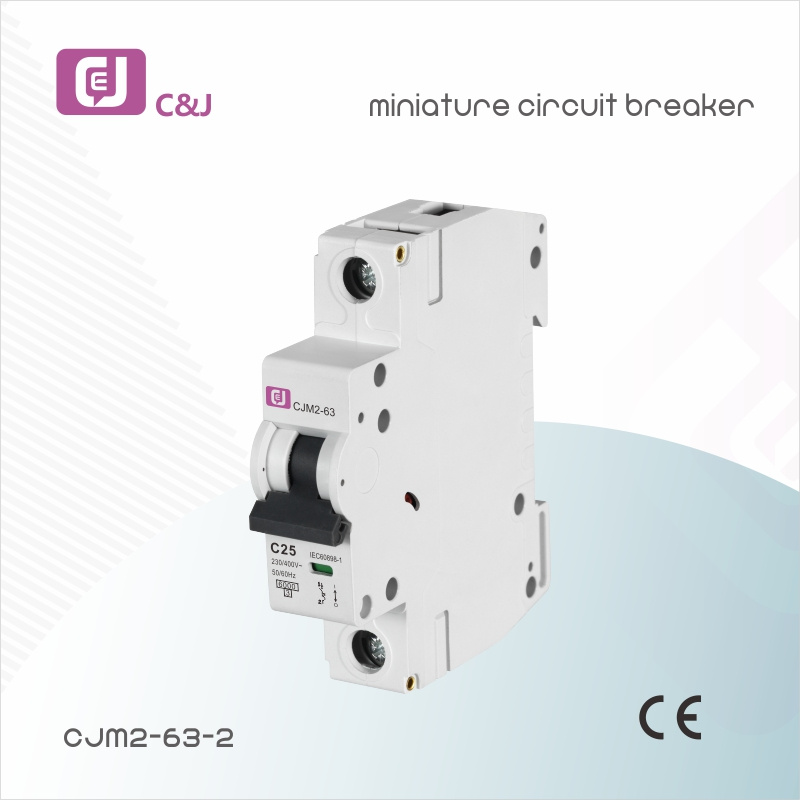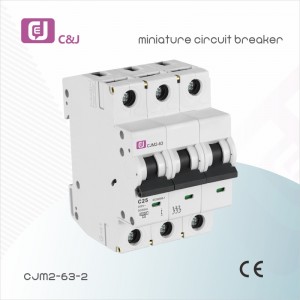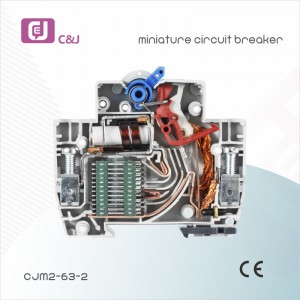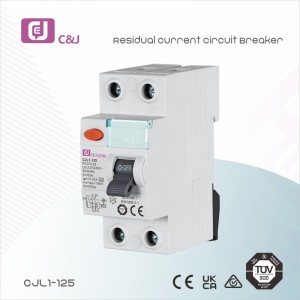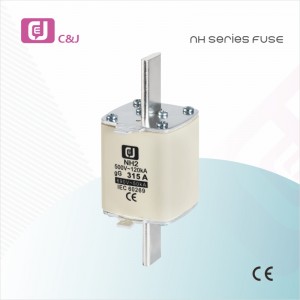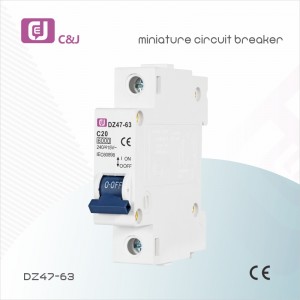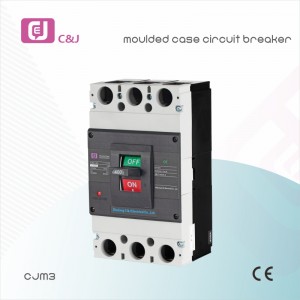Miniature Circuit Breaker (MCB) CJM2-63-2
Construction and Feature
- High short-short capacity 10KA
- Designed to protect circuit carrying big current up to 63A
- Contact position indication
- Used as main switch in household and similar installation
Specification
| Standard | IEC/EN 60898-1 | ||||
| Pole No | 1P,1P+N, 2P, 3P,3P+N,4P | ||||
| Rated voltage | AC 230V/400V | ||||
| Rated Current(A) | 1A,2A,3A,4A,6A,10A,16A,20A,25A,32A,40A,50A,63A | ||||
| Tripping curve | B, C, D | ||||
| Rated short-circuit capacity(lcn) | 10000A | ||||
| Rated frequency | 50/60Hz | ||||
| Rated impulse withstand voltage Uimp | 4kV | ||||
| Connection terminal | Pillar terminal with clamp | ||||
| Mechanical life | 20,000 Cycles | ||||
| Electrical life | 4000 Cycles | ||||
| Protection degree | IP20 | ||||
| Connection capacity | Flexible conductor 35mm² | ||||
| Rigid conductor 50mm² | |||||
| Installation | On symmetrical DIN rail 35mm | ||||
| Panel mounting |
Overload Current Protection Characteristics
| Test | Tripping Type | Test Current | Initial State | Tripping timeor Non-tripping Time Provisior | |
| a | Time-delay | 1.13In | Cold | t≤1h(In≤63A) t≤2h(ln>63A) |
No Tripping |
| b | Time-delay | 1.45In | After test a | t<1h(In≤63A) t<2h(In>63A) |
Tripping |
| c | Time-delay | 2.55In | Cold | 1s<t<60s(In≤63A) 1s<t<120s(In>63A) |
Tripping |
| d | B curve | 3In | Cold | t≤0.1s | No Tripping |
| C curve | 5In | Cold | t≤0.1s | No Tripping | |
| D curve | 10In | Cold | t≤0.1s | No Tripping | |
| e | B curve | 5In | Cold | t≤0.1s | Tripping |
| C curve | 10In | Cold | t≤0.1s | Tripping | |
| D curve | 20In | Cold | t≤0.1s | Tripping | |
What is MCB?
Miniature Circuit Breaker (MCB) is a type of circuit breaker that is small in size. It immediately cuts off the electrical circuit during any unhealthy condition in the electricity supply systems, such as an overcharge or a short-circuit current. Although a user may reset the MCB, the fuse may detect these situations, and the user must replace it.
The MCB is an electromagnetic device that protects electrical wires and loads from inrush current, preventing fires and other electrical risks. MCB is safer to handle, and it recovers power rapidly. For overloading and transient circuit protection in residential applications, the MCB is the most popular choice. MCBs are extremely quick to reset and require no maintenance. The bi-metal complementary idea is used in MCBs to defend against overflow current and short circuit current.


